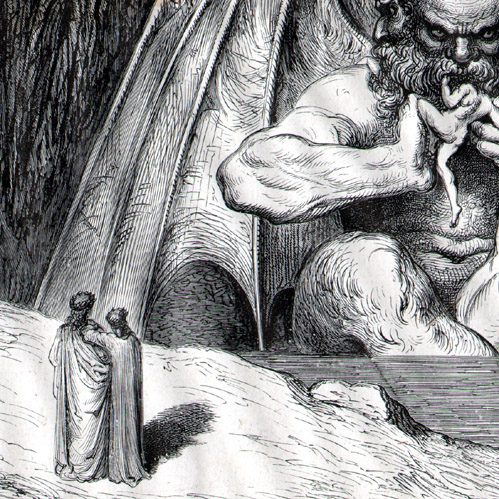“But what we suffer from today is humility in the wrong place. Modesty has moved from the organ of ambition. Modesty has settled upon the organ of conviction; where it was never meant to be.”
– G.K. Chesterton
In the last 48 hours, the United States has become involved in attempts to stop the ruthless barbarism of ISIS in Iraq (Islamic State of Iraq and Syria, now known as Islamic State, but for simplicity further referred to as ISIS in this piece). This radical Islamic movement has spread with lightning efficiency across Syria, Iraq and into Lebanon. And hell has been in its wake. Pockets of Islamic State sympathizers have emerged with black flags flying in Germany, Great Britain and Australia. Their aim? Nothing less than to establish an Islamic Caliphate, operate society by draconian Sharia law and eradicate pesky infidels. They’ve blown up shrines (most notably, the tomb of the Biblical Jonah), defaced churches and ransacked monasteries. Shiites, “apostate” Sunnis have been targeted. Iraqi Christians, Kurds and other religious minorities (e.g., Yezidi) have been labeled, robbed, raped and/or executed. And just what does life under Sharia Law, under ISIS, look like? Consider the “Contract of the City” drawn up by ISIS for immediate implementation in the Nineveh province.
1) All Muslims will be treated well, unless they are allied with oppressors or help criminals.Money taken from the government is now public. Whoever steals or loots faces amputations. Anyone who threatens or blackmails will face severe punishment (This section also quotes a verse from the Quran (Al-Ma’idah: 33) that says that criminals may be killed or crucified).
2) All Muslims are encouraged to perform their prayers with the group.
3) Drugs, alcohol, and cigarettes are banned.
4) Rival political or armed groups are not tolerated.
5) Police and military officers can repent, but anyone who insists upon apostasy faces death. 6) Sharia law is implemented. 7) Graves and shrines are not allowed, and will be destroyed. 8) A women are told that stability is at home and they should not go outside unless necessary.
9) They should be covered, in full Islamic dress.
10) Be happy to live in an Islamic land.
Thus, on the evening of August 7, President Obama stood before the nation and informed us of targeted airstrikes exacted on his order to ensure the safety of American personnel in Iraq and to defend humanitarian airdrops to the Yezidi (a Kurdish religious minority stranded and dying on a mountain surrounded by bloodthirsty ISIS fighters). The President spoke nobly of the reason for intervention,
“So let me be clear about why we must act, and act now. When we face a situation like we do on that mountain — with innocent people facing the prospect of violence on a horrific scale, when we have a mandate to help — in this case, a request from the Iraqi government — and when we have the unique capabilities to help avert a massacre, then I believe the United States of America cannot turn a blind eye. We can act, carefully and responsibly, to prevent a potential act of genocide. That’s what we’re doing on that mountain.”
&
“But when the lives of American citizens are at risk, we will take action. That’s my responsibility as Commander-in-Chief. And when many thousands of innocent civilians are faced with the danger of being wiped out, and we have the capacity to do something about it, we will take action. That is our responsibility as Americans. That’s a hallmark of American leadership. That’s who we are.”
I couldn’t agree more. That IS who we are. I have written previously about the threat of ISIS (On ISIS and the Fearsome Rhyming of History) and the need for President Obama to address the plight of Iraqi Christians under ISIS (ISIS, President Obama & One Simple Truth). Furthermore, my Patheos colleagues have written brilliantly on these matters (see the thoughtful pieces by Elizabeth Scalia, Tom MacDonald, Pia de Solenni, Fr. Dwight Longenecker, Rebecca Hamilton, Frank Weathers, Sam Rocha & Mark Shea).
I have to admit that in the days and weeks of anxious breath-holding over the unfolding terror in Iraq, a heavy sigh was exhaled when the President spoke. It is heartening to see that he is beginning to understand the magnitude of what he once flippantly described as a “J.V.” (junior varsity team compared to the “Kobe Bryant” of Al Qaeda) entity on the world scene.
And yet, while addressing the reasons behind American action, the President couldn’t help but beg understanding to excuse what is now being done,
“I’ve said before, the United States cannot and should not intervene every time there’s a crisis in the world.”
&
“I know that many of you are rightly concerned about any American military action in Iraq, even limited strikes like these. I understand that. I ran for this office in part to end our war in Iraq and welcome our troops home, and that’s what we’ve done. As Commander-in-Chief, I will not allow the United States to be dragged into fighting another war in Iraq. And so even as we support Iraqis as they take the fight to these terrorists, American combat troops will not be returning to fight in Iraq, because there’s no American military solution to the larger crisis in Iraq.”
&
“Over the last several years, we have brought the vast majority of our troops home from Iraq and Afghanistan. And I’ve been careful to resist calls to turn time and again to our military, because America has other tools in our arsenal than our military.”
Okay. I get it. It makes sense to explain to Americans why it is necessary to risk the lives of soldier sons, daughters, mothers and fathers in a country half a world away. As a parent, if my child were a soldier, I would expect nothing less.
But I think his statements go beyond that.
I think this speaks to the issue of guilt. There is a subtle (or not so subtle) undertone to a lot of what this President says that seems apologetic for something we have done or something we have been. Now as a Catholic, I understand guilt. I don’t say that sarcastically, but rather, I say that, to a point, an element of guilt is healthy. If I sin and feel no guilt as a spur to confess my sin and receive absolution, I risk remaining in my sin which is a rather morbid state to live in. Furthermore, without honest confession, I risk further sin. I am likely to rationalize my actions and move forward with a warped conscience that fails to comport itself with the Will of God. And so I sin some more. And excuse some more. And sin some more. And on and on. So, I understand guilt.
But here is something I have come to realize. We were not made to reside in guilt. Guilt as a spur is an honest and healthy thing. Guilt as an immobilizing millstone is not. This is what I fear about our country.
A whole industry has been created around the guilt of America. Guilt about war. Guilt about race. Guilt about gender. Guilt about economics. Guilt about our values. Guilt about our lack of values. Guilt that we carry from generations past. Guilt that we have earned ourselves. You name it, we can feel guilty about it. After a while, the stifling cloud of our supposed wrongdoing obscures not only our virtues, but also our path forward.
Does that mean that we should simply be dismissive of guilt? Should we firmly fix our jaws and set our eyes forward with cock-sure confidence that we can do no wrong as a country? Of course not. No human being is infallible. Likewise, no country of human beings is infallible. And yet, every human being is redeemable. Is it possible that countries are as well?
As a country, sometimes we do too much and sometimes we do too little. Sometimes we are engaged in a nuclear arms race and sometimes we are in protracted counterinsurgencies. Sometimes we are friends with despots and sometimes we are enemies. Sometimes our interests are too near the surface and sometimes our interests are frustratingly absent. Our country can behave… well, it can behave like me. Earnest, inconsistent, honorable, yet imperfect.
But sometimes…yes, sometimes…we need to put the guilt and self-flagellation away. We need to remember that though we enslaved, we freed slaves, though we segregated, we desegregated, though we waged war, we rebuilt, though we financially crashed, we climbed up again. Peter wouldn’t have done Christ much good if he would have remained weeping in a room over the sin he committed against his Lord. Instead, he received redemption, walked with his still-stinging wounds and changed the world. Now, I am not calling America “Peter”. But I am saying that our country has its wounds (like we all do) and yet shouldn’t stop striving to live up to its principles in spite of them. As Flannery O’Connor once noted,
“Accepting oneself does not preclude an attempt to become better.”
On the notion of untethered guilt, French essayist Pascal Bruckner once observed in his book, The Tyranny of Guilt,
“Nothing is more Western than hatred of the West, that passion for cursing and lacerating ourselves…But instead of coming out of this process greater and purified, [the West] devours itself in a kind of self-cannibalism and takes a morose pleasure in annihilating itself. Hypercriticism eventuates in self-hatred, leaving behind it only ruins.”
As we face vicious threats like ISIS, it is important – nay, it is absolutely vital – that we know who are. Yes, we must correct ourselves where we need correcting, but we must then confidently move forward toward the sure lights of dignity, justice and truth. Guilt, we must remember, should be a spur, not a millstone.
In the end, Mr. Bruckner may have been onto something. We have our work cut out for us. That is for sure. But perhaps, just perhaps (if Mr. Bruckner would indulge my borrowing his phrase), before toppling the emerging tyranny of ISIS, we must first topple another grave threat: The Tyranny of Guilt.











